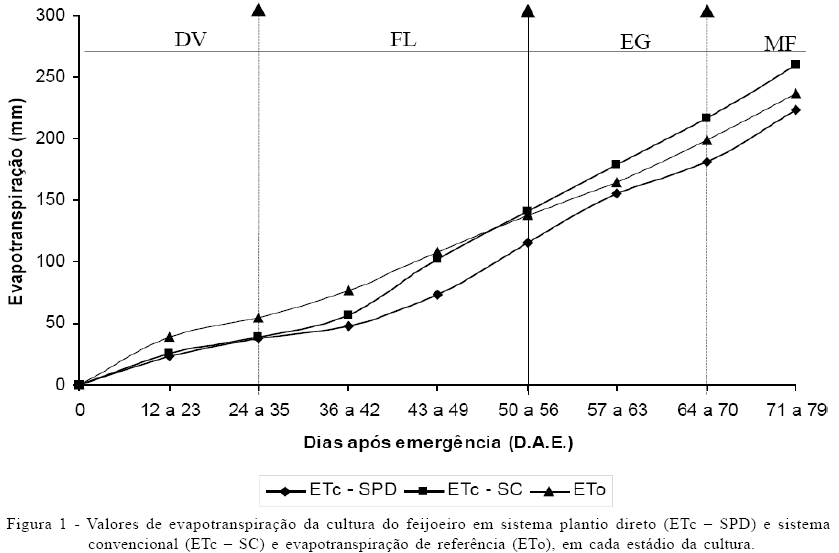The inappropriate use of water resources in agriculture, to get higher yields, has caused negative impacts on soil water storage, reducing the efficiency of irrigated productive systems. The aim of this research was to study water use through crop coefficients for sprinkler-irrigated beans at different development stages, in addition to the production of grains and their components, in no tillage and tillage crop systems. Irrigation management was monitored with tensiometers to maintain the soil water content level between 28% (at the moment of irrigation) and 31% (field capacity). The crop evapotranspiration level (ETc) was obtained from the soil water balance and the reference evapotranspiration (ETo) using the Penman-Monteith method. The results indicate that bean crop coefficients show lower values in the no tillage system than in the conventional tillage system, during flowering and pod formation stages. The bean plants in no tillage system are more efficient in relation to water use than the conventional tillage system, because in this system, the bean crop shows higher grain yield with lower water consumption.
Phaseolus vulgaris; soil tillage systems; crop coefficient; water use efficiency



